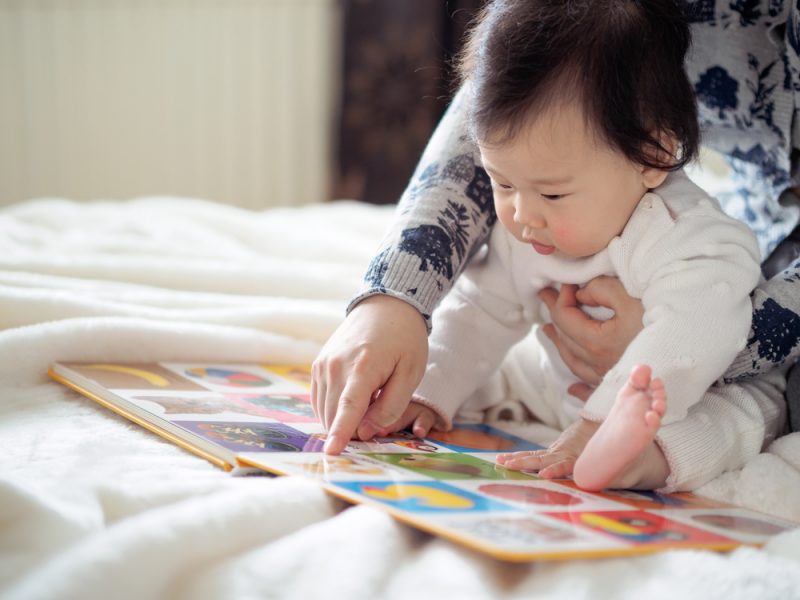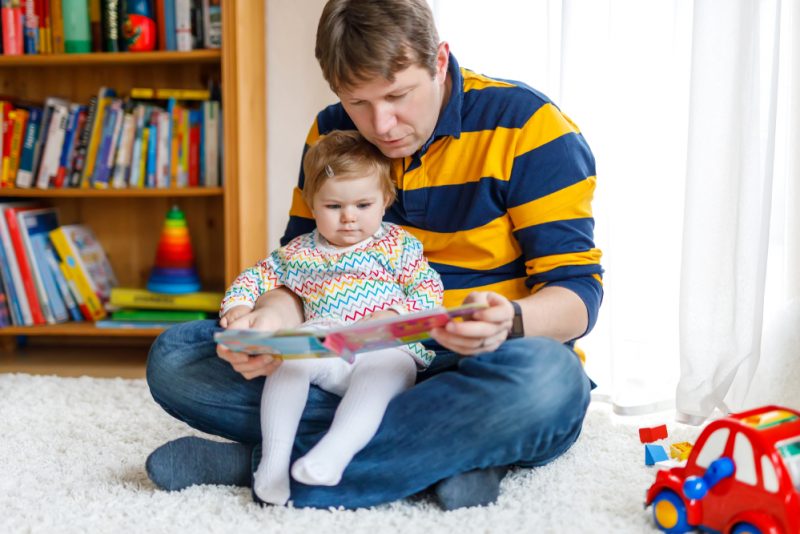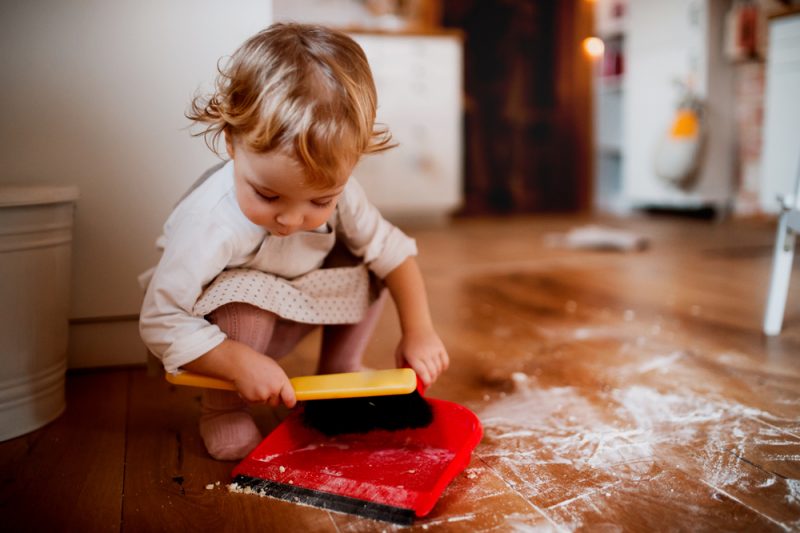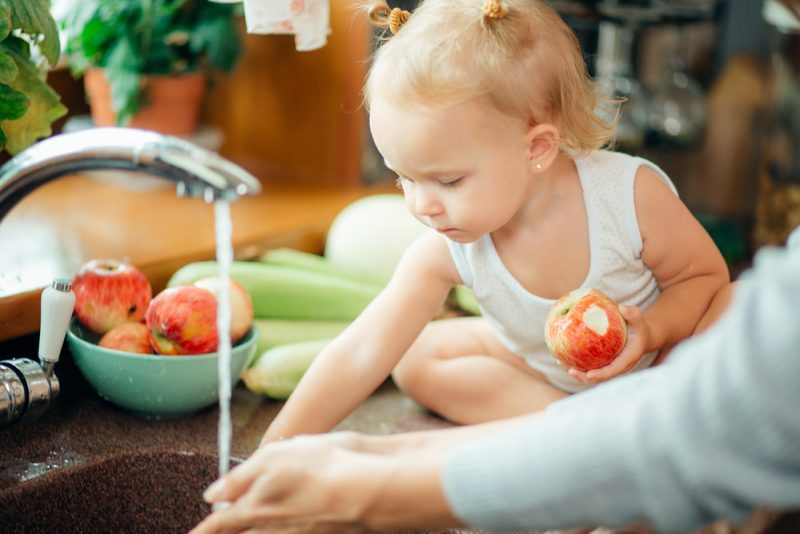All children develop differently. Milestones, like rolling, crawling, and walking, are well-documented but talking is a bit trickier. Some toddlers start babbling away while others are quiet. Regardless of the little personalities here are some great ways to encourage talking and get your little ones communicating at home.
0-6 months of Age
One of the first things babies come to recognise is faces. Infants will watch parents’ faces with attention and respond as you talk. To help your baby make sense of what and how you say things, hold your baby close and make eye contact when you speak to them.

This can be anything, you can talk about your day, chat to them about what you’re doing (i.e. bathing, changing, or feeding them) or just sing a little tune.
Singing and rhyming are especially useful to babies and children. Melody and repetition help babies tune in to the cadence of words and memorise them. Nursery rhymes, songs and other musical aids can also help these little language lessons.
Last, but not least, is make sure to listen to your baby. Listen to what they have to say and respond. Repeat the sounds they make back to them. This helps them understand the back and forth of conversation.
6-12 months of Age
At this age, babies are more aware of their surroundings. Visual aids can help them understand their surroundings. Using sign language as you speak, pointing at things as you say the words and otherwise gesturing can help associate words with their meanings.

Books are a great way to get your child interested in language. You don’t have to read a book necessarily but if you have some interesting baby books with large pictures and pages try pointing at pictures and talking about them. A good example of this is pointing at an animal and mimicking the sound it makes.
Dummies can make it hard to talk. Try to avoid using dummies as much as possible, especially before bedtime. ICan have a helpful guide for parents on speech and the effects of dummies on speech.
Start being more playful with language. Games like peek-a-boo are a great way to indicate words mean a specific activity and your baby will associate more activities to the language around them.
You can also start counting out loud to build numeracy and linguistic understanding of numbers.
12-18 months of Age
At this age, you can begin to increase language difficulty. Instead of just call and response start giving your child options. For example, when playing ask; ‘Do you want the car or the dinosaur?’. These questions will allow your little one to verbalise their requests and further connect words to their meanings.

Play with toys that make sounds. They may get tiresome for parents but these noisy toys are great for maintaining your baby’s attention.
Singing together can also be a great language aid. Practice nursery rhymes with them and even add little dance moves to make it more fun.
It’s also important to remember that at this age some words may be difficult for your baby to say so if they mispronounce something don’t correct them. Acknowledge what they are talking about and respond accordingly.
18-24 months of Age

At this point, your child has probably got hundreds of words bouncing around their heads. To help with memory practice repetition. Make sure you don’t contract your sentence to ‘it’, ‘them’, etc. Instead, keep using the right work. For example:
“Where is your bag? Is your bag over there? What’s in your bag?”
Instead of:
“Where is your bag? Is it over there? What’s in it?”
You can also start playing games with simple instructions. Hide and seek, I Spy, and other games that require comprehension makes your child work their brains to communicate effectively and listen to instructions.
At this age, you’re also likely to share memories with your child. Maybe it’s a favourite song or book? Try reading aloud together, or singing together in the car to practice communication skills.
2+ years of Age
From 2 years onwards your child is likely to have a unique development path. Take your time to understand them and help them build sentences. If they use a phrase like ‘Go out’ then complete it for them and affirm what they’re saying, for example ‘Go outside and play.’

When you’re speaking to your toddler try to always start communication by using their name to get their attention. Don’t speak straight away. Wait for them to recognise and respond before continuing with your chat.
Finally, children are great mimics and want to be involved in everything you do. If you’re cooking, cleaning, or just playing games include language and communicate what you’re doing. Speak to them directly about the task at hand and they’ll pick up on the actions, words, and ways to respond in the future.
Who We Are
At Stepping Stones Day Nursery we work hard to provide the very best education and lifestyle for your children. Our team of expert teachers and carers have years of experience helping nurture minds and we love helping parents create memorable moments with their little ones.
Contact us today to find out more about what Stepping Stones has to offer and how to get placement. We can’t wait to get you and your little one started on an extraordinary journey.
